Welcome to our comprehensive guide on organic fruit tree fertilizers! Whether you’re a seasoned gardener or just starting your horticultural journey, this blog will provide you with valuable insights and practical tips on how to nurture your fruit trees with the best organic fertilizers available. We’ll explore the benefits of organic fertilizers, delve into various types and their specific applications, and offer guidance on how to create a balanced fertilization plan that ensures the health and productivity of your fruit trees. By the end of this guide, you’ll be well-equipped with the knowledge to enhance your garden’s sustainability and enjoy bountiful, delicious harvests. Let’s get started on your path to gardening success!
Applying organic fertilizer to fruit trees
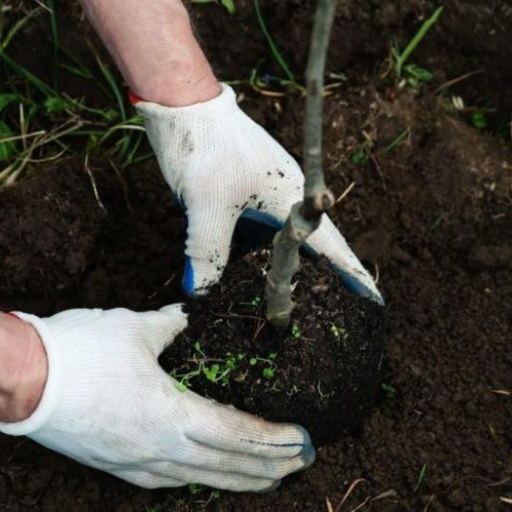
Fruit Trees Organic Fertilizer Benefits
The multiple benefits of using organic fertilizers for fruit trees are vital for the success of a beautiful garden. First, organic fertilizers help improve soil structure through improved water and nutrient retention that enhance root growth and overall tree health. Additionally, they release nutrients slowly to ensure a gradual flow of essential constituents that help reduce over-fertilization risks and burning due to excessive nutrition. Furthermore, they stimulate microbial activity in the soil so as to enhance nutrient absorption and maintain proper balance of ecosystem. Finally, since it is made up of natural elements, it can be used sustainably while limiting chemical runoffs in gardening practices. These advantages result into strong healthy fruit trees with more quality fruits.
Organic vs Synthetic Fertilizers: What is Best?
When comparing organic versus synthetic fertilizers one can see several significant contrasts between them. Slow-release essential nutrients provided by organic fertilizers such as compost, manure and bone meal foster long-term sustainability and soil health (Curtis). They also improve soil structure while increasing microbial activities leading to better nutrient absorption into the plants hence more balanced ecosystem.
In contrast synthetic or artificial fertilizers contain mineral salts in readily available form which are quickly absorbed by plants once applied to soils. Although synthetic fertilizers may provide quick results, they do not contribute towards soil health and can cause problems like leaching out nutrients from soils or even degrading the soils after sometime (Buckingham).
Ultimately choosing between organic and synthetic fertilizer depends on what your garden calls for Organic Products For Sale .For those looking at sustainable practices and long term soil health then the choice should be organic fertilizer On the other hand if you need instant outcomes because you are facing some lacking nutrients situations then go for synthetic ones A combination of both techniques depending on given conditions would be appropriate too.
Understanding Nutritional Needs for Fruit Trees
To grow effectively with abundant harvests fruit trees require an equal mixture of macronutrients and micronutrients. The primary macronutrients include nitrogen, phosphorus, and potassium. Nitrogen is essential for leaf and shoot growth; whereas , root development and flowering are supported by phosphorus; while potassium improves fruit quality and tree health in general. In addition, iron, zinc, manganese among other micronutrients play vital roles in different physiological processes.
Therefore regular soil testing is important to establish the nutrient levels within your soil which will enable you easily adjust your fertilization strategies accordingly. Based on these results one can regulate their fertilizer usage or even find another that suits their type of fruit trees. Proper timing as well as application methods ensures that roots take up nutrients more efficiently hence stronger healthier trees which produce better fruits.
Choosing the Best Fertilizer for Citrus and Other Fruit Trees
Factors to Consider When Choosing a Fertilizer
Selecting fertilizer for citrus and other fruit trees involves many important considerations.
- Nutrient Content: The fertilizer should have a mix of essential nutrients, not omitting nitrogen, phosphorous and potassium as well as trace elements such as iron, zinc and manganese. Match the N-P-K ratio with your tree’s specific needs based on soil test results.
- Type of Fertilizer: Decide between organic or synthetic fertilizers. Organic options like compost and manure improve soil health and release nutrients slowly. Synthetic fertilizers provide quick nutrient availability, precise nutrient ratios that are useful for immediate shortages.
- Soil and pH Level: Citrus and several other fruit trees prefer well-drained soil with a slightly acidic to neutral pH (about 6.0-7.0). Adjust the soil pH in order to maintain this range and increase nutrient uptake.
- Application Timing: Apply fertilizers during early spring or late summer when trees are actively growing. Do not apply fertilizer when they are dormant or just before there is an expected frost.
- Environmental Impact: Think about the environmental consequences of your decision. Organic fertilizers enhance soil structure in addition to promoting beneficial microbial activity hence they are generally considered green products. Synthetic varieties should be used sparingly since they lead to nutrient pollution and runoff.
By considering all these factors one can make an informed choice that will guarantee the healthiness and productivity of his/her citrus or fruit trees.
The Role of Nitrogen, Phosphorous, and Potassium in Fruit Production
Nitrogen, phosphorus, and potassium are foundational elements necessary for fruit production.
- Nitrogen (N): This element plays a crucial part in vegetative growth since it is a major component of chlorophyll which is responsible for photosynthesis; thus enabling plants to produce energy from sunlight. It is also responsible for leaf development ensuring there exists enough leaves on stem which can support bearing fruits.
- Phosphorus (P): Phosphorus is one of the elements needed to transfer energy in plant. It is an essential component of ATP (adenosine triphosphate), which stores and transports chemical energy within cells. It helps in root formation, flower and seed production and general maturity of a plant ensuring that fruit trees develop strong roots and ample flowers from which fruits can grow.
- Potassium (K): Potassium improves overall healthiness and strength of plants. It controls numerous metabolic processes, plays a role in protein synthesis, as well as increases water stress resistance by plants including droughts or diseases. It also affects fruit size, shape, color, taste thus contributing to the quality and quantity of any crop yield.
By giving these key nutrients to fruit trees at balanced amounts; their health can be improved as well as number plus quality of fruits harvesters get out of them being optimized.
Application Techniques: How to Properly Fertilize Your Fruit Trees
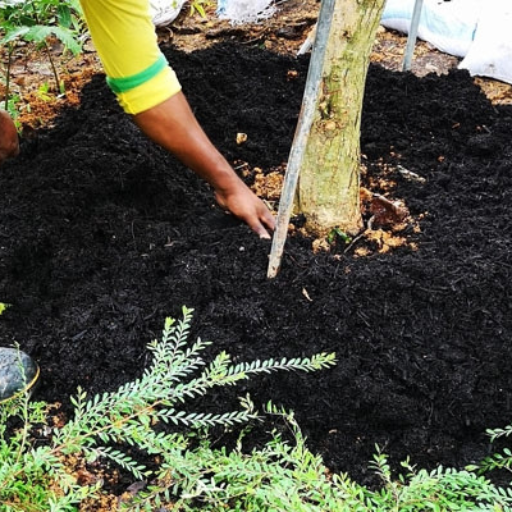
A step-by-step guide to fertilizing fruit trees
- Select the right fertilizer: Choosing a balanced fertilizer normally with a ratio like 10-10-10 which contains nitrogen, phosphorus and potassium. It is also possible to go for organic alternatives such as compost or well-rotted manure.
- Timing matters: Before the growing season begins in early spring, your fruit trees should be fertilized at this time. This ensures that they receive necessary nutrients just when it is most needed. A second application can be done late in spring or early summer but do not do it towards end of the season because it can stimulate late growth which is prone to winter injury
- Work out the amounts of fertilizer required: How much fertilizer you need depends on the age and size of your tree. Young trees generally require less fertilizer compared to mature ones. Check instructions on fertilizer packaging for guidance.
- Application must be even: The manure should be distributed evenly around the drip line (that’s underneath the canopy) so as to ensure that all nutrients reach where most of the tree’s feeder roots are located.
- Water deeply: Water deeply after applying fertiliser in order for these nutrients to dissolve and get absorbed by the roots.
- Monitor and adjust: keep track of how your fruit trees are doing concerning their growth as well as health status. If you discover any signs related with nutrient deficiency of overgrowth then accordingly make corrections to your fertilization plans.
In this way, you will always provide your fruit trees with all vital nutrients necessary for their growth and development up until when it bears good quality fruits.
How often should you fertilize your fruit trees?
The frequency at which one should apply fertilizers on fruit trees varies depending on factors such as type of tree, soil condition and stage of growth. On average young fruit trees should only be applied one or two times annually with manure. While only one application may be enough for matured forests in early spring to support their needs throughout the growing season. Monitoring soil nutrient levels through testing can help in making more precise adjustments. Hence over-fertilizing should always be avoided because it is likely going to reduce fruit quality and cause damage to trees. For the best results, one has to check what one’s specific tree type requires as well as local soil characteristics.
Understanding Soil and Its Role in Fruit Tree Health
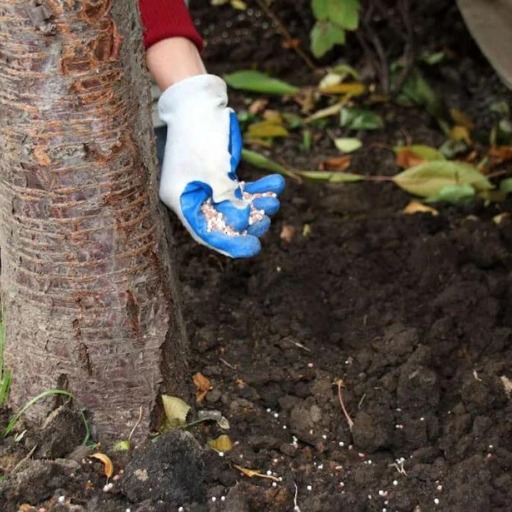
The Significance of Soil pH and soil testing
The condition of soil pH is crucial in determining the fitness and fruitfulness of the trees. It directly affects the nutrients accessibility as well as beneficial microbes action in the soil. The most suitable range of soil pH for most common fruit trees is between 6.0 to 7.0 which is slightly acidic to neutral. Regular soil test is essential in order to establish existing levels of ph and nutrient status of your soil. These tests will show any deficiencies or imbalances, enabling you apply lime to raise or sulfur to lower PH accordingly. Keeping an optimum soil ph will lead to better nutrient uptake hence more healthy plants with good yield.
Enhancing Soil Quality through Compost and Organic Matter
Adding compost and organic matter into your garden is a vital step towards ensuring you have quality food crop products such as fruits that are healthy for consumption by human beings. This is because this practice ensures that the fruits grow healthily since compost contains essential nutrients that enhance growth process while organics impart beneficial microorganisms on the root system which helps improve soil structure among other things like water retention capacity and aeration through increase in organic content involving decomposed leaves, plant residues, manure etc. By regularly adding compost and organic matter, it increases crop fertility thereby making nutrients available for tree absorption consequently fostering a thriving ground ecosystem. Mulching can also be applied around trees so as to retain ground moisture, prevent weed growth besides further enhancing dirt productivity.Mulching using straw or wood chips around tree base can also help conserve ground water level keeping away weeding materials that may inhibit their growth.A layer of compost or organic matter should be placed at the base of each tree annually depending on its demands during autumn/winter seasons.
How To Improve The Growth Of Fruit Trees Through Soil Amendment.
Soil amendment for optimal fruit tree growth involves certain steps: Firstly, do a soil test to determine its pH and check whether there is enough nutrients in the soil. In case of inappropriate pH, either increase or decrease it by adding lime and sulfur respectively. Secondly, you can improve the structure ,fertility and moisture retention of soil by incorporating organic matter such as compost, well-rotted manure or leave mold. The organic matter should be mixed into the top 6-12 inches of soil mainly occupied by the tree roots. Additionally, mulching around trees using straw or wood chips helps prevent weed growth and maintain soil water content. Ensure that there is good drainage to avoid water logging which can kill fruit trees. These steps will help create a suitable environment for healthy production of fruit trees with high yields.
Special Considerations for Specific Fruit Trees
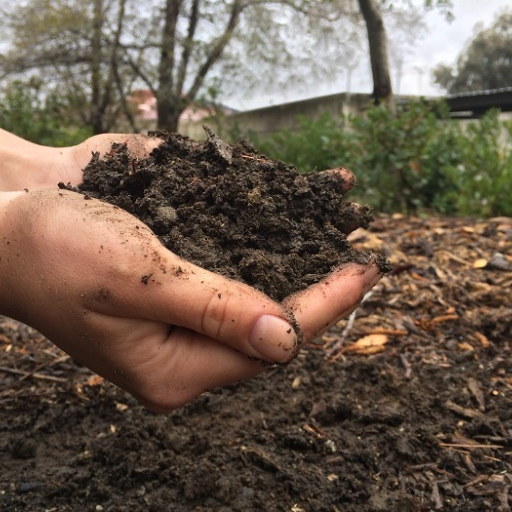
Cultivating Apple Trees: Optimal Ways
Timing, fertilizer type and method of application are important when it comes to fertilization of apple trees. It is advisable to begin with a soil test in order to determine any nutrient deficiencies and pH levels. Generally speaking, apple trees require a balanced fertilizer like 10-10-10 or 20-10-10 formulation. Young apple trees should be fertilized twice: early spring before bud break and during late spring as well. However, an annual application in the early spring may be enough for mature trees.
Distribute the fertilizer equally around the tree roots while avoiding contact with the stem. The quantity of manure used differs depending on tree age and size; young trees need just half pound nitrogen per year of tree age, whereas mature ones will have to take up to three pounds actual nitrogen every season. Besides that compost or well rotted manure can as well be used as organic alternatives thus working as soil enrichmeters by providing nutrients in a slow release manner.
Last but not least over-fertilizing should be avoided since it leads towards excessive vegetative growth at the expense of fruit production. Therefore, monitoring growth conscious and adjusting fertilization practices accordingly shall go along way into keeping an apple orchard healthy and productive.
Taking Care of Citrus Trees with Organic Fertilizers
Moreover, taking care of citrus trees using organic fertilizers involves several steps starting with selection of right kind compost, well decomposed manures fish emulsion or even specific organic citrus fertilizers that are available. Firstly I apply my organic material during early spring when new growth starts showing leaves on my citrus tress this is also done consistently for small amount every two or three months until end summer ensuring continuous supply nourishment.fertilizer so it does not spread everywhere.
Additionally, avoid piling up the manure against the trunk also ensure that you water completely flood areas after applying organics to let nutrients reach the root zone. In this way, I make sure my citrus trees get all the necessary nutrients they need without adding chemicals that will accumulate in the soil. Continual monitoring and adjusting as per tree’s feedback helps me keep healthy and fruitful stands of citrus trees in my farm.
Fertilizer Requirement for Finger Lime and Pecan Trees
Fig and nut trees have specific nutrient needs to thrive and produce abundant yields. Figs benefit from adequate nitrogen supplies, which encourage their growth and enhance fruit production. During early stages it is good to use a balanced fertilizer with slightly more nitrogen content. At first I apply it in spring then later at the end of summer also for them to grow properly. Fig also prefer phosphorous and potassium, which promote root development and quality of fruits.
Other nut trees, such as almonds and walnuts, have unique dietary requirements too. Nitrogen is required to promote general growth and robustness, which is often given in spring as the new growth begins. Phosphorous encourages root development and flowering while potassium enhances water regulation and disease resistance. For figs and nut trees alike organic alternatives such as composts, well rotted manure or chicken droppings are excellent for maintaining a steady supply of nutrients over a long period . Mulching every year consistently added with regular watering improves uptake of minerals that enhance the wellbeing of these plants resulting into productive figs and nuts. Moreover soil testing at regular intervals allows to adjust fertilization practices to optimize tree nutrition plus yield potential based on seasonal observations for instance with regard to leaf coloration.
Frequently Asked Questions (FAQs)
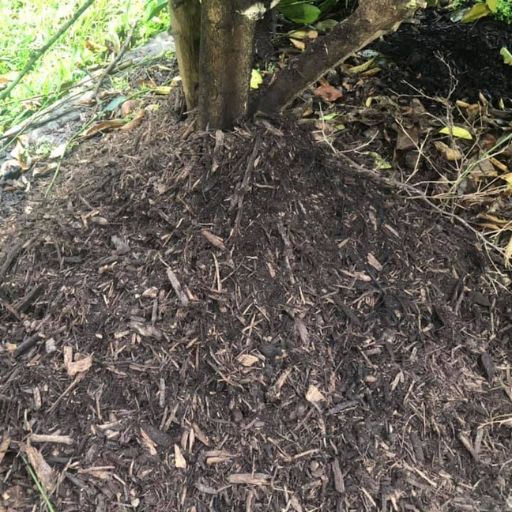
Q: What is bone meal, and how does it benefit fruit trees?
A: Bone meal is slow-release phosphorus-rich organic fertilizer. It is important for rooting and flowering. Healthy soils for fruiting in fruit trees. This can provide your garden with a long-term steady supply of nutrients.
Q: How do organic fertilizers like kelp meal support plant growth?
A: Kelp meal as an organic fertilizer that contains minerals, vitamins, and growth hormones which enable those plants to assimilate food from the soil and develop roots. It enhances the soil structure, increases beneficial soil microorganisms, and provides essential nutrients to growing fruit trees such as overall plant health improvement with more fruitful yields.
Q: What are some key ingredients found in high-quality organic fruit tree fertilizers?
A: Some common ingredients used to make high quality organic fruit tree fertilizers include alfalfa meal, blood meal, bone meal, kelp meal, chicken manure and bat guano. These ingredients undergo scrutiny by organizations like the Organic Materials Review Institute (OMRI) so that they may be formulated to have well balanced nutrition profiles that are aimed at promoting healthy soils and vibrant fruits.
Q: Can I make my own organic fertilizer for my garden?
A: Indeed you can prepare your very own home-made compost using materials such as composting materials like; alfalfa hay bales or pellets; seaweed kelp or dry fishmeal; bone ash powder etc. These materials assist in increasing the fertility of the soil if combined in proper proportions thus forming a nutrient rich manure mixture specifically suited for your tree crop rights. Provided right mixture is utilized homemade natural manures can be greatly effective.
Q: Why is organic transparency important in fruit tree fertilizers?
A: Organic transparency verifies that what you use on your garden meets National Organic Program criteria for their information on fertilization requirements & process guarantees safety from synthetic chemicals have been reviewed by credible institutions’ services. Whenever you use certified organic fertilizers, you support a healthy garden and obtain safe food.
Q: How does calcium benefit fruit trees?
A: Calcium is important in the development of stronger and healthier plants with respect to fruit tree cell walls. It also helps reduce conditions such as blossom end rot among others which consequently improves the quality of fruits in general. That is why adding a calcium rich organic fertilizer like bone meal can be an excellent way of giving your tree care routine a great boost.






